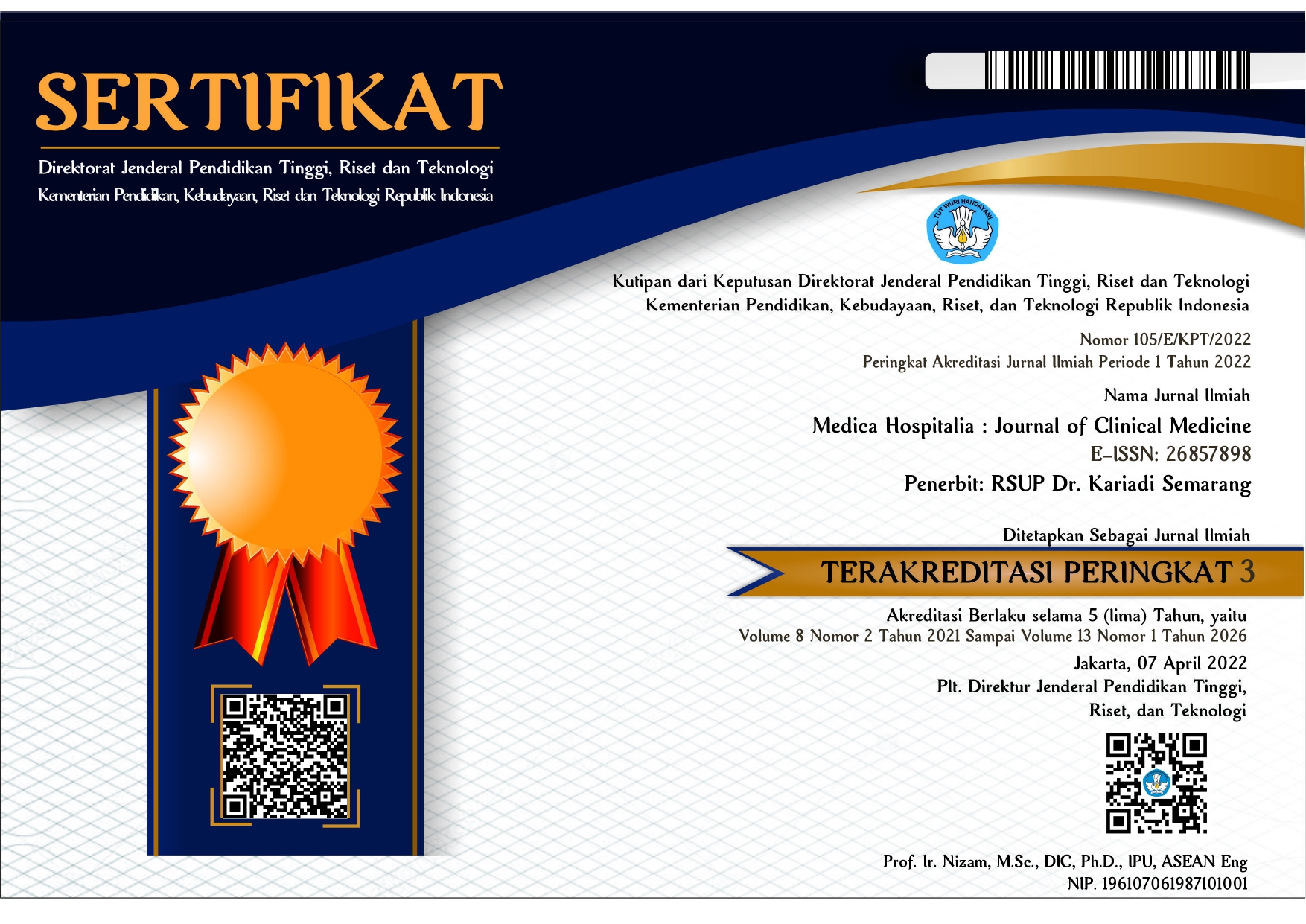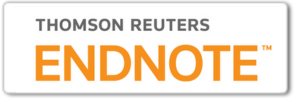Pengaruh Pemberian Aromaterapi Lemon terhadap Skor Kecemasan Mahasiswi Fakultas Kedokteran Universitas Diponegoro
DOI:
https://doi.org/10.36408/mhjcm.v7i2.408Keywords:
lemon aromatherapy, anxiety, medical studentAbstract
Background: Based by Riskesdas in 2013, 6% of Indonesia’s population the age of 15 years old and more had emotional disorders which shown by symptoms of anxiety and depression. In university students, the study found that 25% of them had light anxiety, 60% had moderate anxiety, and 15% had severe anxiety. The mean of medical student who had anxiety symptoms around the world are 12-69%. Relaxation therapy able to decrease anxiety level, which by giving aromatherapy, it able to stimulates the brain to relax. Lemon is one of the aromatherapies that found effectively able to decrease anxiety symptoms by its refreshingly sharp smell and lifting the mood, which strengthening its user’s psyche. To measure the anxiety score, the author used the Zung Self-rating Anxiety Scale (ZSAS). The objective of this study aimed to investigate the effect of inhaling lemon aromatherapy on anxiety in female students of Medical Faculty of Diponegoro University
Methods: This study used experimental pre and post-test without control design. Zung Self-rating Anxiety Scale was used to investigate the anxiety level of the samples. 32 persons volunteered as participants by 1 of them dropped out. The group inhaled lemon aromatherapy for 2 weeks. At the end of week 2, the participants’ anxiety was measured, and the results were statistically analysed. Saphiro-Wilk Test was used as the normality test while the results of the measured anxiety were tested by Wilcoxon Test.
Results: There was a significant decreased anxiety score of the participants after inhaling lemon aromatherapy for two weeks. Based by pre and post-test result, the mean of anxiety score decreased from 37.32 to 31.84 (p=0.000).
Conclusions: Lemon aromatherapy essential oil is able to significantly decrease the anxiety score of female students of Faculty of Medicine Diponegoro University.
Keywords: Lemon aromatherapy, anxiety, medical student
Downloads
References
Wiramihardja SA. Pengantar psikologi abnormal. Ninth Edit. Bandung: PT Refika Aditama; 2005.
Fawzy M, Hamed SA. Prevalence of psychological stress, depression and anxiety among medical students in Egypt. Psychiatry Res [Internet]. 2019;255(August 2016):186–94. Available from: https://doi.org/10.1016/j.psychres.2017.05.027
Ahmed I, Banu H, Al-fageer R, Al-suwaidi R. Cognitive emotions?: Depression and anxiety in medical students and staff. J Crit Care [Internet]. 2009;24(3):e1–7. Available from: http://dx.doi.org/10.1016/j.jcrc.2009.06.003
Latas M, Pantic M, Obradovic D. P02-103 - Medical students test anxiety. Eur Psychiatry [Internet]. 25:707. Available from: http://dx.doi.org/10.1016/S0924-9338(10)70701-X
Saputra RRHJFP. Perbandingan Antara Pemberian Aromaterapi Kenanga Dan Aromaterapi Lemon Terhadap Penurunan Tekanan Darah Di RSUD Tanah Bumbu. Dinamika Kesehatan, Vol 9 No 2 Desember 2018. 2018;9(2):521–33.
Lemon K. An assessment of treating depression and anxiety with aromatherapy. Int J Aromather. 2004;14(2):63–9.
Gnatta JR, Kurebayashi LFS, Turrini RNT, Da Silva MJP. Aromatherapy and nursing: Historical and theoretical conception. Rev da Esc Enferm. 2016;50(1):127–33.
Komiya, M.; Takeuchi, T.; Harada, E. Lemon oil vapor causes an anti-stress effect via modulating the 5-HT and DA activities in mice. Behav. Brain Res. 2006, 172, 240–249. [CrossRef] [PubMed]
Alissa D. Pengaruh Aromaterapi Lemon Terhadap Kualitas Tidur pada Lansia. [dissertation]. Yogyakarta: Universitas Muhammadiyah; 2015.
Ogeturk, M.; Kose, E.; Sarsilmaz, M.; Akpinar, B.; Kus, I.; Meydan, S. Effects of lemon essential oil aroma on the learning behaviors of rats. Neurosciences 2010, 15, 292–293. [PubMed]
Ceccarelli, I.; Lariviere, W.R.; Fiorenzani, P.; Sacerdote, P.; Aloisi, A.M. Effects of long-term exposure of lemon essential oil odor on behavioral, hormonal and neuronal parameters in male and female rats. Brain Res. 2004, 1001, 78–86. [CrossRef] [PubMed]
Akpinar, B. The effects of olfactory stimuli on scholastic performance. Ir. J. Educ. 2005, 36, 86–90.
Dosoky NS, Setzer WN. Biological activities and safety of citrus spp. Essential oils. Int J Mol Sci. 2018;19(7):1–25.
Additional Files
Published
How to Cite
Issue
Section
Citation Check
License
Copyright (c) 2020 Medica Hospitalia : Journal of Clinical Medicine

This work is licensed under a Creative Commons Attribution-ShareAlike 4.0 International License.
Copyrights Notice
Copyrights:
Researchers publishing manuscrips at Medica Hospitalis: Journal of Clinical Medicine agree with regulations as follow:
Copyrights of each article belong to researchers, and it is likewise the patent rights
Researchers admit that Medica Hospitalia: Journal of Clinical Medicine has the right of first publication
Researchers may submit manuscripts separately, manage non exclusive distribution of published manuscripts into other versions (such as: being sent to researchers’ institutional repository, publication in the books, etc), admitting that manuscripts have been firstly published at Medica Hospitalia: Journal of Clinical Medicine
License:
Medica Hospitalia: Journal of Clinical Medicine is disseminated based on provisions of Creative Common Attribution-Share Alike 4.0 Internasional It allows individuals to duplicate and disseminate manuscripts in any formats, to alter, compose and make derivatives of manuscripts for any purpose. You are not allowed to use manuscripts for commercial purposes. You should properly acknowledge, reference links, and state that alterations have been made. You can do so in proper ways, but it does not hint that the licensors support you or your usage.

























